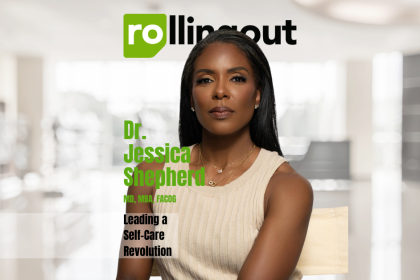In a world increasingly disconnected from nature, Dr. Stefanie K. Dunning stands as a bridge between academia and environmental consciousness. A distinguished professor at The University of Rochester, Dunning has dedicated her work to exploring the complex relationship between Black communities and the natural world. Her groundbreaking book “Black to Nature: Pastoral Return and African American Culture” and accompanying podcast challenge traditional Western narratives about nature, race, and spirituality.
As a Spelman College graduate and recipient of the African American Review’s most notable essay award, Dunning brings a unique perspective to environmental discourse. Her work, featured in Yale Climate Connections and the Chautauqua Institution, examines how reconnecting with nature can serve as a powerful tool for liberation and healing in Black communities.
In this illuminating conversation, Dr. Dunning discusses the historical barriers that have separated Black people from nature, the spiritual warfare of white supremacy, and the transformative power of environmental connection.
[Editor’s note: This is a truncated transcription of a longer video interview. Please see the video for the extended version. Some errors may occur.]
As a professor working in conversations centered on women and people of color in academia, how do you merge your intellectual perspective with your connection to nature? What is the meaning of the ecology of enlightenment?
In the Western tradition, humans are defined as separate from nature. But we don’t come into the world from some other location – we are an extension of the world itself. Space is incredibly important to how we constitute our identity, which isn’t something you’re born with. It’s created through your family relationships, interactions with people in society, and most importantly, through your interaction with space.
Can you elaborate on the historical disconnect between Black communities and nature?
White supremacy has separated Black people from nature in three primary ways: through forced agricultural labor under slavery, violence against Black people in natural spaces, and through discourses of primitivism. When you spend time in nature, it begins to undo the ideology of white supremacy, which says that Black people have no place in this world and no earthly inheritance. Being in nature changes your body physiologically. Sleeping outside, hearing crickets, waking up to natural sunlight – it literally transforms your body, making you healthier and changing your brainwaves.
How does this relationship between humans and nature reflect broader environmental concerns?
The earth can survive without us, but we can’t survive without it. The fantasy of the West is that we’ll just get into metal rocket ships and shoot ourselves to Mars. But that’s not going to work. We are no different from a tree. You can’t take a rose bush, put it in a metal thing with water, shoot it into space, and expect it to be alive. Because it is of this earth. It is a piece of this earth. And so, if you remove it from this earth, you kill it.
How does this connect to our lost knowledge of farming and herbalism?
Part of white supremacy’s impact was separating us from knowledge of raising food and understanding how to use natural resources. There’s an art and science to being able to know how to go into the woods and gather berries or herbs for tea or medicine. We brought certain plants to plantations that didn’t previously exist. This separation takes us away from a center of power and pulls us away from knowing we’re of this land, that we have a right to it and a duty to protect it. It’s literally a lifeline for us – psychologically, emotionally, spiritually, physiologically and for our communities.
How do meditation and enlightenment connect to our relationship with nature?
In Buddhism, enlightenment – Nibbana in Pali – means extinguishing. When you move into meditation and spirituality, you’re disidentifying from the notion that yourself exists as an in-dwelling entity. You start to understand that you’re part of the broader ecological phenomenon. I use the concept of interbeing from Thích Nhất Hạnh – we are contiguous with nature. Once we spend time there, we begin to drop that boundary of “I’m a human, this is a tree, this is a fox, this is a bumblebee.” Instead, we become one with this grand creation.
What practices do you recommend for connecting with nature? What physical and emotional benefits have you observed?
Going for a walk outside should be like meditation – without aim. You’re just there to experience the wonder of the space. I’ve worked with people who have ADHD who can’t sit and meditate, but they can go outside. It’s amazing to see what happens – you can just walk without talking, let your mind do whatever it’s going to do, and feel the internal processes down-regulate into a calm space. The scientific studies show that even hospital patients heal faster when they can see trees from their windows, and even faster when they can sit outside in fresh air and sunlight.
How do traditional nature narratives differ from your approach?
The mainstreaming of nature writing in the West is framed through adventure and conquest – like a North Face ad with someone hanging one-handed off a rock. It’s framed in ways that imply exclusion to anybody who doesn’t want to engage in extreme activities. These modalities we associate with being “into nature” cement in people’s minds that you have to be a daredevil. But that’s not the only way to connect with nature. There are many ways to experience and benefit from the natural world that don’t involve risk-taking.
Can you share Lucille Clifton’s perspective on nature through her poetry?
Her poem “The Earth is a Living Thing” merges the Black body with nature. It identifies beautiful Black things in nature and collapses the boundary between the Black body and these elements – rocks, diamonds, birds circling, water. It undoes the Western drive to wedge between Black people and the natural world, reclaiming nature as our natural home and inheritance.











